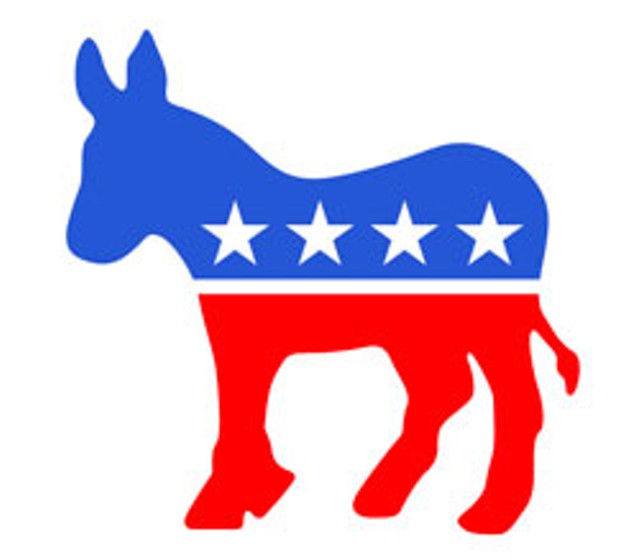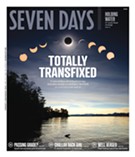Published February 10, 2010 at 11:38 a.m.
The dark cloud hanging over the U.S. Supreme Court may have a silver lining for Vermont.
A lesser-known section of the recent decision on corporate spending in elections, Citizens United v. Federal Election Commission, could nullify one of the main arguments in a separate federal lawsuit seeking to overturn what’s left of Vermont’s campaign- disclosure laws.
The same lawyer behind the controversial Supreme Court case, James Bopp Jr. of Indiana, is challenging Vermont’s campaign finance laws in U.S. District Court in Burlington. Bopp has made a career of fighting federal and state laws that regulate campaign spending, and secured the precedent-setting 2006 Supreme Court ruling in Randall v. Sorrell, which threw out Vermont’s strict limits on what candidates could raise and spend in elections.
The newest federal lawsuit, brought by Bopp through the conservative Vermont Right to Life Committee, is a multipronged attack on Vermont’s already weakened campaign finance laws. The lawsuit seeks to overturn state statutes requiring political committees such as Right to Life to make public the names of their donors and the amounts they spend on political advertisements. Vermont Right to Life argues that its donors prefer to remain anonymous and that disclosure rules are too onerous for low-budget political groups.
In the lawsuit, Vermont Right to Life states its desire to finance advertising campaigns and mass mailings attacking Democrats running for governor — specifically state senators Doug Racine and Peter Shumlin — without identifying who paid for them, either in paper filings or in the ads themselves. Separately, Vermont Right to Life wants the court to get rid of a $2000 cap on contributions to political action committees, or PACs, that spend money on a candidate’s behalf.
The implications for this year’s governor’s race are significant: Lt. Gov. Brian Dubie, the presumptive Republican nominee for governor, is a favorite candidate of Vermont Right to Life, which has spent thousands of dollars on Dubie’s behalf in previous elections.
But the recent high court ruling may have the power to keep such activities transparent. Assistant Attorney General Eve Jacobs-Carnahan, the lead lawyer defending the state against Vermont Right to Life’s challenge, says the Supreme Court’s decision undermines her opponent’s case.
The widely criticized 5-4 decision in Citizens United allows corporations to spend unlimited sums on ads attacking individual candidates. On the question of disclosure, however, the court ruled 8-1 that laws that force PACs to report who’s funding them — such as the statute Vermont Right to Life wants thrown out — are in fact constitutional.
Jacobs-Carnahan says the ruling is “totally analogous” to questions at issue in the Vermont case and will bolster her argument.
Cheryl Hanna, a constitutional law professor at Vermont Law School, agrees that the Citizens United ruling weakens Vermont Right to Life’s antidisclosure arguments. “If you have a free market approach to the first amendment, then consumers — in this case, voters — need information,” Hanna says.
On February 6, both sides in the Right to Life case filed motions for summary judgment that ask U.S. District Judge William Sessions III to decide the case for them without going to trial.
Meanwhile, back at the Statehouse, Democratic candidates for governor are calling for overhauls of Vermont’s campaign-finance laws in response to the Supreme Court ruling. Shumlin and two other Senate Democrats announced legislation that would impose new restrictions on so-called independent expenditures by corporations, labor unions and other political groups.
Independent expenditures, such as those that bought the infamous Swift Boat ads run during the 2004 presidential election, don’t go directly to candidates but often promote messages that support one candidate or attack another. Corporations have been banned for a century from directly funding such ads, but the Supreme Court ruling lifts that prohibition.
Vermont law already requires political ads to bear the name of their sponsor, usually at the bottom of a print ad or at the end of a radio or television spot. But Shumlin wants even more transparency, such as requiring television ads to carry a CNN-style ticker bearing the names of their sponsors, or requiring radio ads to be interrupted every 10 to 15 seconds to identify who paid for them.
Shumlin says his bill would also require the secretary of state’s office to set up a database so that within 24 hours of a political media buy, details about who paid for the ad and who funded its sponsors would be publicly available online. As it stands now, the candidates running for governor and other statewide offices aren’t required to disclose their fundraising totals until August 5, just weeks before voters must pick a candidate in the primary election.
“We want to inform the public about who’s paying the bill,” Shumlin says.
Secretary of State Deb Markowitz, also a candidate for governor, wants to adopt rules that would require shareholder approval of any corporate-funded political ad campaign — a measure aimed at preventing a few corporate executives from influencing elections with their companies’ fortunes.
Democratic candidate Matt Dunne, the Google executive and former state senator, has called for limiting spending by corporations that do business with the state of Vermont. He also thinks candidates for statewide office should be required to disclose their personal financial interests, the so-called “Douglas standard.”
The Dubie standard? The presumptive Republican candidate has yet to weigh in.
In Vermont, Corporate Contributions to Candidates Are Nothing New
Vermont’s campaign finance laws are friendlier to corporations than federal laws — even after the recent Supreme Court ruling.
Here, corporations and labor unions can donate up to $2000 directly to a candidate and spend unlimited sums on advertisements attacking or supporting a candidate. Federal law still bars corporations from donating directly to campaigns, even though the Citizens United ruling opened the floodgates for unlimited indirect expenditures like attack ads.
The idea of elections bought and paid for by big firms has campaign finance reformers up in arms, yet most political observers agree that Vermont’s permissive laws haven’t led to an orgy of corporate spending in Green Mountain State elections.
Why not?
Cheryl Hanna, a constitutional law professor at Vermont Law School, suggests a few reasons: One is that big corporations may find Vermont’s low population doesn’t deliver much “bang for the buck” on political ads. Another is that businesses have to tread carefully when endorsing candidates or issues, Hanna says, lest they alienate their employees, customers or vendors.
A third possible explanation is Vermont’s unique culture.
“In Vermont, there may be already a deeper skepticism about corporations and companies that may not have made it so reasonable for corporations to run those kinds of ads,” Hanna says. Big corporate spending could backfire by turning off voters, she says.
Hanna and others suggest that once the national culture changes, Vermont attitudes toward corporate ads may change, too. “We’ll all get used to seeing these ads on TV, and we won’t find them so shocking or so unusual,” Hanna says.
But political insiders disagree on how soon that shift will occur. Secretary of State Deb Markowitz, one of five Democrats running for governor, predicts corporations won’t waste their time on statewide elections this year and will funnel their money instead into important congressional races.
Senate President Pro Tem Peter Shumlin, another gubernatorial hopeful, foresees a different outcome — one that might include big spending by Entergy, the owners of the embattled Vermont Yankee nuclear plant. The legislature is set to vote this session on whether to relicense the nuke plant for another 20 years. Shumlin predicts lawmakers who stand against the plant — like himself — could become targets of attack ads.
“It’s naive to suggest that corporate America doesn’t have an interest in influencing the governor’s race in Vermont, when we make decisions like whether or not Entergy’s power plants can continue to operate in the state for another 20 years,” Shumlin says. “Corporations care. They are in the business of making money and protecting their profit. The danger in Vermont is it takes so little money to influence elections compared to other states, that we are ripe for the picking.”
More By This Author
Speaking of...
-

Best rock artist or group
Aug 1, 2018 -

Opinion: Should Rape Victims Get Custody Rights?
Feb 26, 2014 -

At the Junction of State and Federal Law, I-91 Checkpoint Becomes Site of Legal Collision
Feb 5, 2014 -

Maple Makeover? Vermonters Discover a New Sugaring Technique
Feb 5, 2014 -

Disharmony on Prospect Street: A Dispute Between Neighbors Strikes a Sour Note
Feb 5, 2014 - More »
Comments
Comments are closed.
From 2014-2020, Seven Days allowed readers to comment on all stories posted on our website. While we've appreciated the suggestions and insights, right now Seven Days is prioritizing our core mission — producing high-quality, responsible local journalism — over moderating online debates between readers.
To criticize, correct or praise our reporting, please send us a letter to the editor or send us a tip. We’ll check it out and report the results.
Online comments may return when we have better tech tools for managing them. Thanks for reading.













































